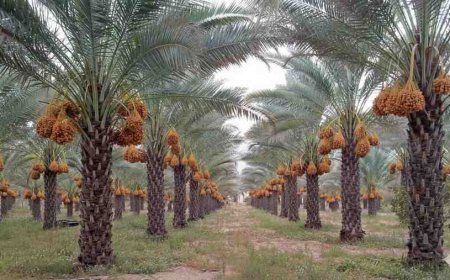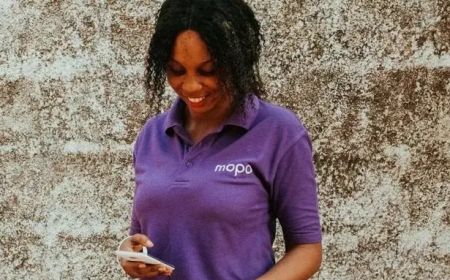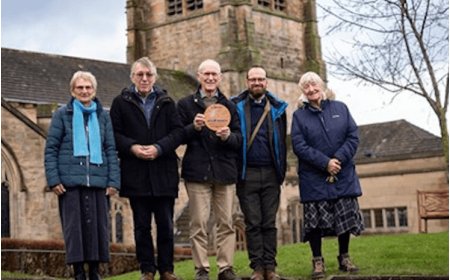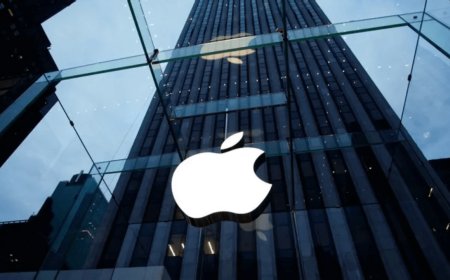Beyond Sweetness: Royal Palm Dates Group Leads a Zero-Waste Revolution with Dates
Royal Palm Dates Group is pioneering the circular food economy by transforming dates into sweeteners, fibers, and oils — all with a zero-waste approach. Explore their sustainable farming practices and innovative biorefinery model.
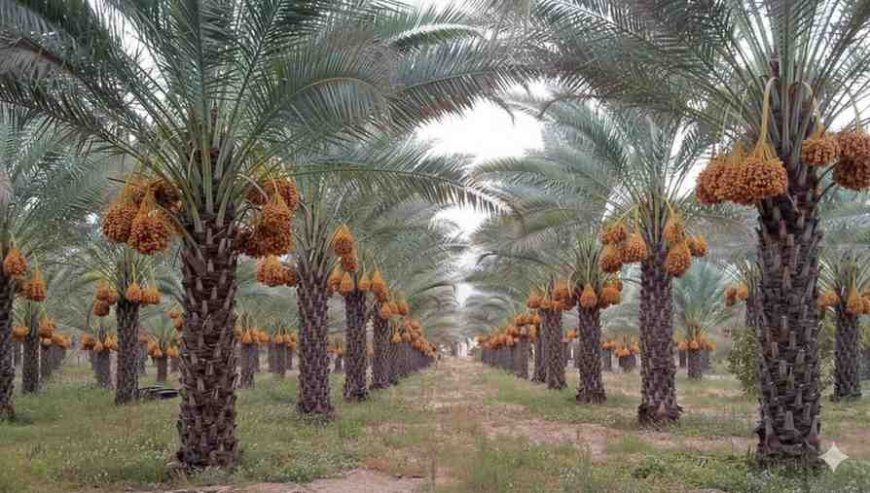
From Fruit to Future: Royal Palm Dates Group Pioneers a Circular Model for Sustainable Food
The Royal Palm Dates Group is redefining the future of food production by building a fully circular economy around one of the world's oldest fruits: the date. Moving far beyond traditional farming, the company has integrated sustainable practices at every level—from energy-efficient factories located in the desert to a multi-stream biorefinery that ensures no part of the fruit goes to waste. This model demonstrates how agricultural heritage can power modern environmental innovation.
In an exclusive insight, Chief Sales Officer Taha Alwaisi outlined a vision focused on maximizing resource value. "Our goal is to create maximum output with minimal environmental input," he explained. "This means leveraging renewable energy, recycling water, and transforming every part of the date into useful, high-demand ingredients."
Sustainable Infrastructure: Factories Designed for Efficiency
The Group’s operational backbone consists of six state-of-the-art processing facilities strategically located across the Middle East and North Africa (MENA) region. A key sustainability decision was to place these plants adjacent to date plantations. This proximity drastically reduces transportation emissions and ensures fruit is processed at peak freshness, preserving nutritional quality and flavor.
The facilities themselves are engineered for low environmental impact. Rooftop solar panels are being expanded to meet a significant portion of energy needs, while closed-loop water systems recycle processing water, greatly reducing consumption from municipal sources.
"By building next to the source, we cut food miles and carbon footprint from day one," stated Alwaisi. "Pairing that with solar power and water recycling creates a fundamentally efficient production system."
Core Innovation: The Multi-Stream Biorefinery
While the company produces staple products like date paste and dark date syrup for the food industry, its most significant innovation lies in its biorefinery approach. This system processes byproducts that would typically be discarded—such as seeds, pulp, and skins—into high-value ingredients, achieving a near zero-waste operation.
This innovative pipeline produces a diverse range of specialty products:
-
Golden Date Syrup: A natural alternative to honey or golden syrup.
-
Clear Date Sweetener: A neutral-tasting sweetener for light-colored beverages and dairy products.
-
Date Fiber: Enhances texture and fiber content in baked goods and plant-based meats.
-
Date Seed Oil: A nutrient-rich oil for nutraceutical and cosmetic applications.
-
Spray-Dried Date Powder: A versatile dry sweetener for instant mixes.
-
Date Seed Powder: A caffeine-free flour with a cocoa-coffee profile for baking.
Closing the Loop: From Farm to Finished Product
The circular philosophy extends beyond the factory walls. On the farm, drip irrigation and fertigation systems—guided by precise soil monitoring—deliver water and nutrients directly to plant roots, optimizing resource use. The company employs Integrated Pest Management (IPM) and on-farm composting to maintain soil health naturally.
Even logistical waste is repurposed; damaged plastic harvest crates are recycled into pellets to manufacture new crates, preventing landfill waste. By operating in arid environments, the Group's footprint is inherently deforestation-neutral, protecting vital forest ecosystems.
Meeting Modern Market Demands for Transparency
Today’s global buyers in the bakery, beverage, and nutraceutical industries increasingly demand traceable and sustainable ingredients. Royal Palm Dates Group is positioned to meet this demand by providing verifiable data on water recycling rates, upcycled content, and carbon reduction.
"ESG metrics are now a decisive factor for major retailers," emphasized Alwaisi. "When a supplier can show concrete evidence of water reuse or waste upcycling, it transforms a sample into a secured contract. Transparency builds the trust needed for long-term partnerships."
A Replicable Model for the Global Food Industry
The Royal Palm Dates Group presents a powerful case study in how circular principles can be successfully applied to agriculture. By viewing waste as a resource and integrating sustainability from farm to final product, the company achieves both environmental responsibility and commercial viability.
This approach offers a replicable blueprint for other sectors seeking to reduce their ecological impact while fostering innovation. The humble date, therefore, is not just a fruit but a catalyst for a more sustainable and efficient food system for the future.
For inquiries, Royal Palm Dates Group can be contacted at info@royalgroupae.com or through their website at royalpalm-dates.com.
What's Your Reaction?
 Like
1
Like
1
 Dislike
0
Dislike
0
 Love
0
Love
0
 Funny
0
Funny
0
 Angry
0
Angry
0
 Sad
0
Sad
0
 Wow
1
Wow
1







